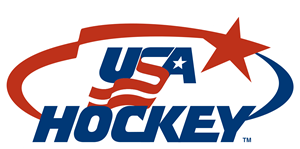Codes of Conduct
USA Hockey
USA Hockey has published a set of core values and codes of conduct for parents, players, spectators and coaches that are reprinted here for our members' consideration. PYH embraces the concept of these core values and codes of conduct for all members of the organization.
CORE VALUES
The following core values of USA Hockey are adopted to guide the association's members in their planning, programming and play, both now and in the future.
SPORTSMANSHIP - Foremost of all values is to learn a sense of fair play. Become humble in victory, gracious in defeat. We will foster friendship with teammates and opponents alike.
RESPECT FOR THE INDIVIDUAL - Treat all others as you expect to be treated.
INTEGRITY- We seek to foster honesty and fair play beyond mere strict interpretation of the rules and regulations of the game.
PURSUIT OF EXCELLENCE AT THE INDIVIDUAL, TEAM AND ORGANIZATIONAL LEVELS - Each member of the organization, whether player, volunteer or staff should seek to perform each aspect of the game to the highest level of his or her ability.
ENJOYMENT- It is important for the hockey experience to be fun, satisfying and rewarding for all participants.
LOYALTY- We aspire to teach loyalty to the ideals and fellow members of the sport of hockey.
TEAMWORK - We value the strength of learning to work together. The use of teamwork is reinforced and rewarded by success in the hockey experience.
PLAYERS CODE OF CONDUCT
- Play for fun
- Work hard to improve your skills
- Be a team player - get along with your teammates
- Learn teamwork, sportsmanship and discipline
- Be on time for practices and games
- Learn the rules and play by them. Always be a good sport.
- Respect your coach, your teammates, your parents, opponents and officials.
- Never argue with an official's decision.
Parents Code of Conduct
- Do not force your children to participate in sports, but support their desires to play their chosen sport. Make it fun.
- Encourage your child to play by the rules. Remember, children learn better by example, so applaud the good plays of both teams.
- Do not embarrass your child by yelling at players, coaches or officials. By showing a positive attitude toward the game and all of its participants your child will benefit.
- Emphasize skill development and practices and how they benefit your young athlete. De-emphasize games and competition in the lower age groups.
- Know and study the rules of the game and support the officials on and off the ice. This approach will help in the development and support of the game. Any criticism of the officials only hurts the game.
- Applaud a good effort in victory and in defeat and enforce the positive points of the game. Never yell or physically abuse your child after a game or practice - it is destructive. Work toward removing the physical and verbal abuse in youth sports.
- Recognize the importance of volunteer coaches. They are important to the development of your child and the sport. Communicate with them and support them.
- If you enjoy the game, learn all you can about the game and volunteer!
Spectators Code of Conduct
- Display good sportsmanship. Always respect players, coaches and officials.
- Act appropriately: do not taunt or disturb other fans; enjoy the game together.
- Cheer good plays of all participants; avoid booing opponents.
- Cheer in a positive manner and encourage fair play; profanity and objectionable cheers or gestures are offensive.
- Help provide a safe and fun environment; throwing any items on the ice surface can cause injury to players and officials.
- Do not lean over or pound on the glass; the glass surrounding the ice surface is part of the playing area.
- Support the referees and coaches by trusting their judgement and integrity.
- Be responsible for your own safety - be alert to prevent accidents from flying pucks and other avoidable situations.
- Respect locker rooms as private areas for players, coaches and officials.
- Be supportive after the game. Win or lose, recognize good effort, teamwork and sportsmanship.
Coaches Code of Conduct
- Winning is a consideration, but not the only one, nor the most important one. Care more about the child than winning the game. Remember, players are involved in hockey for fun and enjoyment.
- Be a positive role model to your players, display emotional maturity and be alert to the physical safety of players.
- Be generous with your praise when it is deserved; be consistent, honest; be fair and just; do not criticize players publicly; leam to be a more effective communicator and coach; don't yell at players.
- Adjust to personal needs and problems of players, be a good listener, never verbally or physically abuse a player or official; give all players the opportunity to improve their skills, gain confidence and develop self-esteem; teach them the basics.
- Organize practices that are fun and challenging for your players. Familiarize yourself with the rules, techniques and strategies of hockey; encourage all your players to be team players.
- Maintain an open line of communication with your players' parents. Explain the goals and objectives of your association.
- Be concerned with the overall development of your players. Stress good health habits and clean living
- To play the game is great; to love the game is greater.



